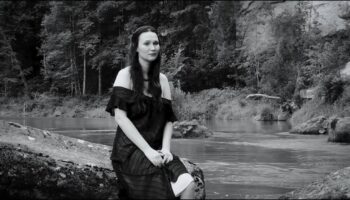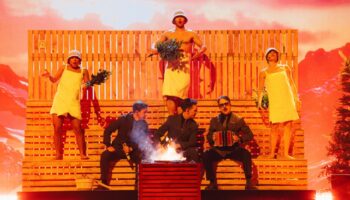The Spanish broadcaster RTVE has been made aware of the discontent that the use of the English language in the country’s entry for the 2014 Eurovision Song Contest has caused among academics.
The Real Academia Española (Royal Spanish Academy), RAE, a Spanish cultural institution, has communicated RTVE that some of its members expressed their disagreement and a certain level of unrest about the use of English in part of the lyrics of Ruth Lorenzo’s entry for the 2014 Eurovision Song Contest. The director of the RAE, José Manuel Blecua, informed of this to the director of RTVE, Leopoldo González-Echenique, by means of a letter written in an amiable tone.
It was specified that the remarks about Dancing in the rain were made personally by a number of members of the RAE, and that it was agreed to send the aforementioned letter during the last meeting of the institution on behalf of it.
RTVE has confirmed that the reception of the letter and its amiable tone.The representative of the broadcaster, Dani Valls, further explained that there is not yet a firm decision on the final version of Dancing in the rain that Ruth Lorenzo will perform on 10 May in Copenhagen. The possibility remains that it could be performed in Spanish, English, or the current version. Dani Valls indicated that Dancing in the rain was originally written in English, but Ruth Lorenzo made the changes for the lyrics in Spanish.
RTVE has pointed out, too, that the rules of the European Broadcasting Union (EBU/UER) do permit the use of languages other than the national ones in the entries for the Eurovision Song Contest.
Precedents
Dancing in the rain is not the first song that represents Spain and which contains parts in languages other than Spanish. José Velez in 1978 used French (Voulez-vous dancer avec moi?), and English has been present in other songs ever since: Lady, Lady by Bravo in 1984; Made in Spain (La chica que yo quiero) by La Década in 1988.
http://www.youtube.com/watch?v=T5JI7XjCcJU
http://www.youtube.com/watch?v=QUZru0M-cks
The most recent examples of this were also the ones that made a broader use of the English language in their words. Baila el Chiki Chiki contained a full strophe and the chorus of La noche es para mi made the English present in the song during its whole length.
http://www.youtube.com/watch?v=juaaUoH-3LM
The Real Academia Española is a cultural institution founded in 1713 whose mission is the promotion of linguistic unity within and between the various territories where Spanish is spoken. This task is fulfilled together with twenty-one more academies based in Spanish-speaking countries and which are members of the Asociación de Academias de la Lengua Española (Association of Spanish Language Academies), founded in Mexico in 1951.
Ruth Lorenzo was chosen for representing Spain in the 2014 Eurovision Song Contest with the song Dancing in the rain.
http://www.youtube.com/watch?v=vHjMlA8QVrM
Stay tuned to esctoday.com for more news on Spain and the Eurovision Song Contest.




